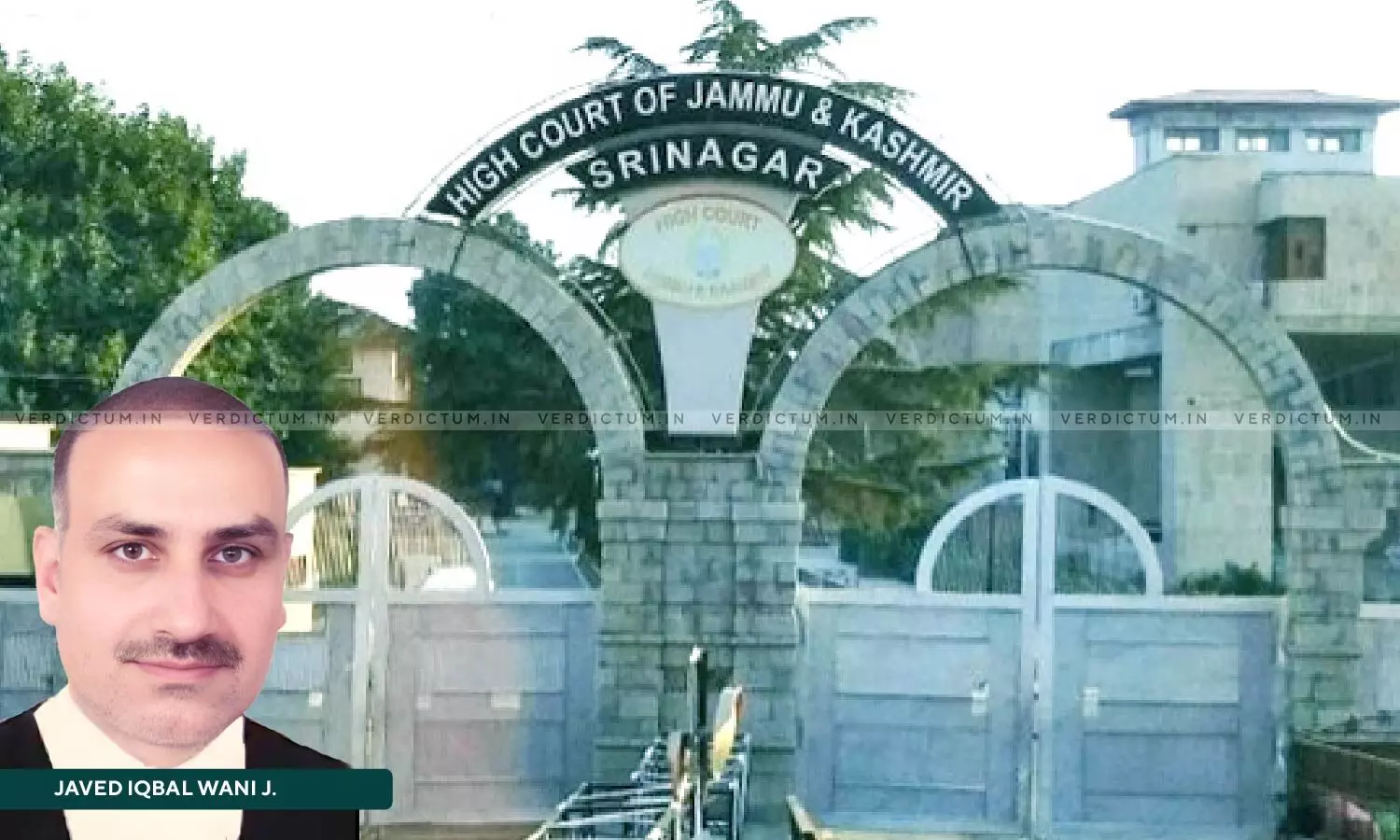
Section 482 CrPC Does Not Confer Unlimited Jurisdiction; High Court Cannot Delve Into Reappreciation Of Evidence: Jammu & Kashmir & Ladakh HC
 |
|The High Court of Jammu Kashmir and Ladakh observed that, during the exercise of the inherent powers under Section 482 of the Criminal Procedure Code, 1973 (CrPC), the Courts should not re-evaluate evidence.
The Court dismissed a Petition seeking to quash the complaint under section 138 of the Negotiable Instruments Act, 1881 (NI Act).
The Court emphasized that inherent powers are not of a revisional or appealable nature and should be sparingly and exceptionally employed.
The Bench of Justice Javed Iqbal Wani observed, “the inherent power vested in this Court under section 482 Cr.P.C. is neither revisional nor appealable in character and the power has to be exercised rarely and in exceptional cases, in that in exercise of such power, the High Court is not required to embark upon the appreciation of evidence for quashing the proceedings”.
Advocate Sumant Sudan appeared for the Petitioner and Advocate F. A. Natnoo appeared for the Respondent.
The petitioner sought to quash the complaint filed by the respondent under section 138 of the NI Act. The Respondent filed the complaint alleging non-payment after services were rendered by the petitioner for construction work. A cheque issued by the petitioner was dishonoured due to insufficient funds. The complainant issued a demand notice, and upon non-payment, filed the impugned complaint.
The Court noted that the inherent power under section 482 of the Criminal Procedure Code, 1973 (CrPC) is not revisional or appealable and should be exercised rarely and exceptionally. The High Court should not quash proceedings solely based on the expressions "abuse of process of law" or "to secure the ends of justice."
“High Court is not required to embark upon the appreciation of evidence for quashing the proceedings and even the expressions “abuse of process of law” or “to secure the ends of justice” have been held by the Apex Court not conferring an unlimited jurisdiction in the High Court besides holding that if factual foundation for offence has been laid down in the complaint, the High Court should not hasten to quash proceedings merely on the premise that one or two ingredients have not been stated therein”, the Bench observed.
Furthermore, the Bench noted that the complainant had sufficiently alleged the dishonour of the cheque and complied with the requirements under the NI Act before filing the complaint. The accused petitioner's challenge to the maintainability of the complaint was not legally sustainable. The Magistrate, in passing the impugned order, demonstrated awareness of the facts and circumstances, and the challenge to the order was legally untenable.
Accordingly, the Court dismissed the Petition.
Cause Title: Iftikar Ahmad v Abdul Majeed